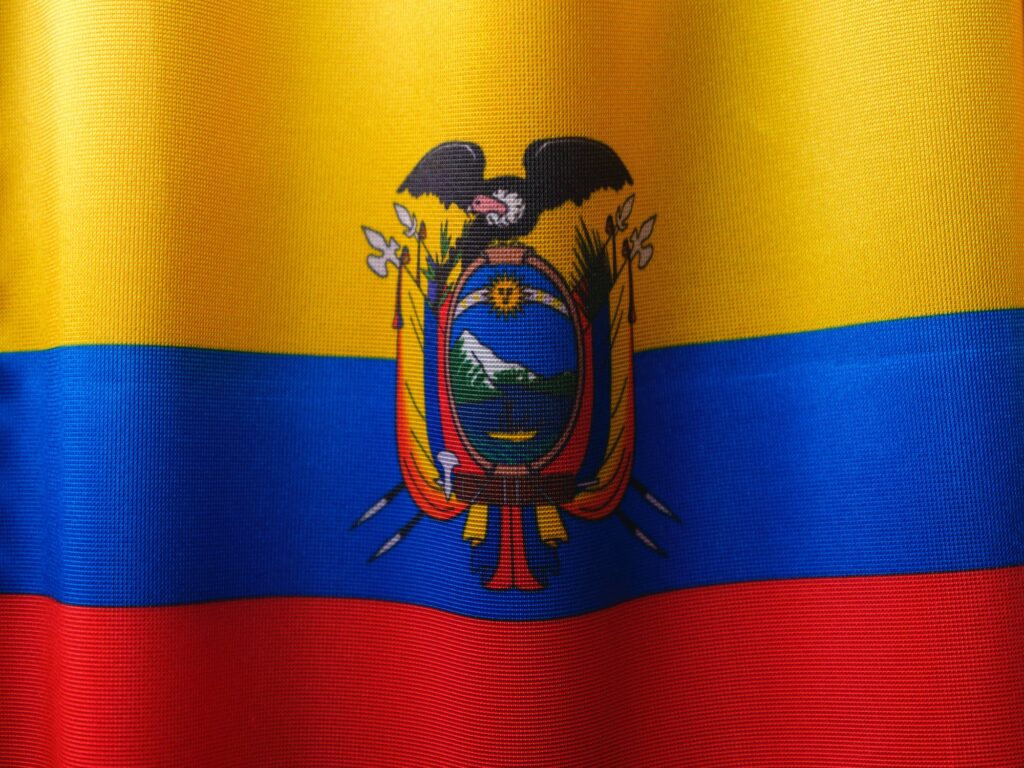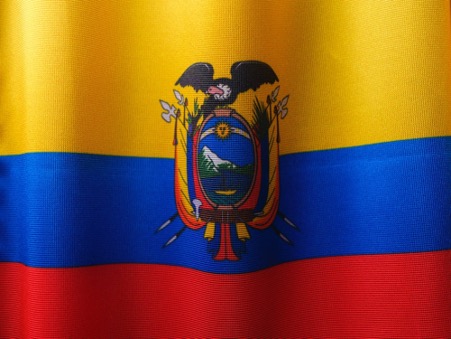Authors: Shams Jouve and Isabelle Despicht - Crime, Terrorism and Extremism Team
Ecuador making headlines: brutal assassinations and increased gang violence
As of today, Ecuador is ranked as the least safe country in Latin America, finding itself in the midst of a bloody turf war, with soaring violence linked to organised crime, civil unrest as well as drug trafficking. Just a glance at the crime rate of 2021 paints a sobering picture of Ecuador's current state of affairs, revealing an alarming 79.79% increasecompared to the previous year. Fast forward to 2023, homicide rates, too, are set to increase up to 40 per 100,000 individuals.
This surge in violence was accompanied by the assassination of at least six political figures, including presidential candidate Fernando Villavicencio, whose death made headlines in August 2023. The murder of Villavicencio, who previously worked as an investigative journalist and uncovered corruption cases in the country, serves as a potent symbol of the growing influence of gangs and their willingness to assert dominance and territorial control in Ecuador.
How have Ecuador's geographical location and institutional weaknesses contributed to criminal influence?
Ecuador's geographical features have long played a role in shaping trafficking routes in the region. Ecuadorian ports represent key transit points for drugs, which are then shipped to Europe and the United States. Laura Lizarazo, senior analyst for the Andean region at political risk consultancy Control Risks, explains: "The market is flooded with cocaine and criminal organisations are adapting to explore this over-production". Equally, Ecuador represents an ideal transhipment point for both human trafficking and illegal arms trade.
For decades, Ecuador was shielded from cocaine-related violence that plagued many other countries in Latin America. This was the result of various factors, among others, an agreement with the Revolutionary Armed Forces of Columbia (FARC), one of the most active armed groups in the Andes region. The FARC, a Marxist guerrilla group founded in 1961, underwent extensive shifts to finally become involved with the drug trade in Latin America in the 1990s. By 2016, it controlled a staggering 60% of the world's most productive coca crops.
Despite the aforementioned, the Ecuadorian government remained engaged with the FARC in the 2000s and 2010s. Meanwhile, the 21st century observed a phenomenal expansion of illegal trafficking and Ecuadorian gangs' influence in the area. Initially mainly governed by Mexican and Colombian cartels and mafia groups, working with local criminal entities as intermediaries, the country slowly became a key transhipment point for illegal trafficking.
New players, such as Chinese mafias in the case of human smuggling, emerged. Local criminal groups gained considerable power and organisational capabilities, including control over a considerable part of the prison system, and gang violence led to several prison massacres and an unprecedented homicide rate.
Another significant obstacle is the emergence of protection rackets, which arose out of prison gangs empowered by police intelligence. These illicit webs thrive at developing patronage networks by establishing connections with the government and accessing its resources. They frequently enlist public officials and coerce them, reaping benefits from state dismantlement. Amongst others, they have been recognised for their role in disseminating prison intelligence to purposely misinform the public.
Amid the aforementioned, several government policies over the last decades have participated in declining criminal activity through social inclusion, police reform, and innovative approaches to criminal justice, including the legalisation of several local gangs. However, public institutions remain weakened by endemic corruption, facilitating criminal activities and compromising state integrity.
The state's inability to monopolise the use of legitimate violence, along with its lack of transparency, has highly damaged public trust in authorities. This further compounds the already challenging economic situation, which fuelled a series of protests over a cost of living crisis in summer 2022.
While all these challenges exist, Ecuador currently aims to build a robust and adequate legal framework to tackle organised crime through local, interstate and transnational cooperation. Nevertheless, implementing such legislation appears to be a significant challenge due to insufficient resources and the lack of independence of Ecuador's judiciary.

A wake-up call for Ecuador’s democracy
Juan Papier, Human Rights Watch's acting deputy director for the Americas, considers Villavicencio's death to be "a wakeup call for Ecuador's democracy". Indeed, strong security policies are needed to reinforce public authorities and tackle transnational organised crime.
As part of the Global Programme on Implementing the Organized Crime Convention, the United Nations Office on Drugs and Crime (UNODC) currently works with Ecuador representatives to establish a National Strategy against organised crime. This partnership aims to reinforce international cooperation and local coordination between representatives of various Ecuadorian institutions. Moreover, the Republic collaborated with the German Agency for International Cooperation (GIZ) "Ecuador SinCero Programme" to tackle Corruption Prevention, Transparency and Citizen Participation between January 2020 and June 2023. This cooperation programme articulated various initiatives, mainly focusing on Public Integrity and the Open Government Model.
Conclusive remarks
While it seems certain that crime and violence rates are still set to rise, recent political events, including Fernando Villavicencio’s assassination, could well represent a pivotal moment for Ecuador. However, to stand ground on these incredibly difficult challenges, measures tackling rampant corruption and promoting judicial independence, transparency and the accountability of perpetrators are needed.
To that end, it is in Ecuador’s interest to seek international guidance in building an effective National Strategy against Transnational Organised Crime and strengthen its collaboration with neighbouring countries. Yet, international cooperation can only complement guidance and concrete domestic efforts. Governmental initiatives must improve public sector management and emphasise civic education and engagement.
In addition, more effective measures should be implemented concerning the protection of local whistleblowers, which still fall short of adequate reporting mechanisms, as demonstrated by the case of Julio Rogelio Viteri Ungaretti v Ecuador, brought before the Inter-American Court of Human Rights (IACHR), in which a member of the Ecuadorian military suffered reprisals for noting irregularities, including acts of corruption within the Armed Forces.
Nevertheless, reducing corruption, strengthening the domestic legal system, improving public sector management, and promoting education and citizen participation will certainly not prove enough to the immense task of strengthening Ecuador’s institutions. Change needs to come from within. Ecuador has an inherent interest in innovating and coming up with solutions that truly allow for this change to be sustainable. Perhaps it could in the future explore the avenues brought by emerging technologies, which may be used, for instance, to reduce human interaction and control corruption within administrative processes.

No comments.